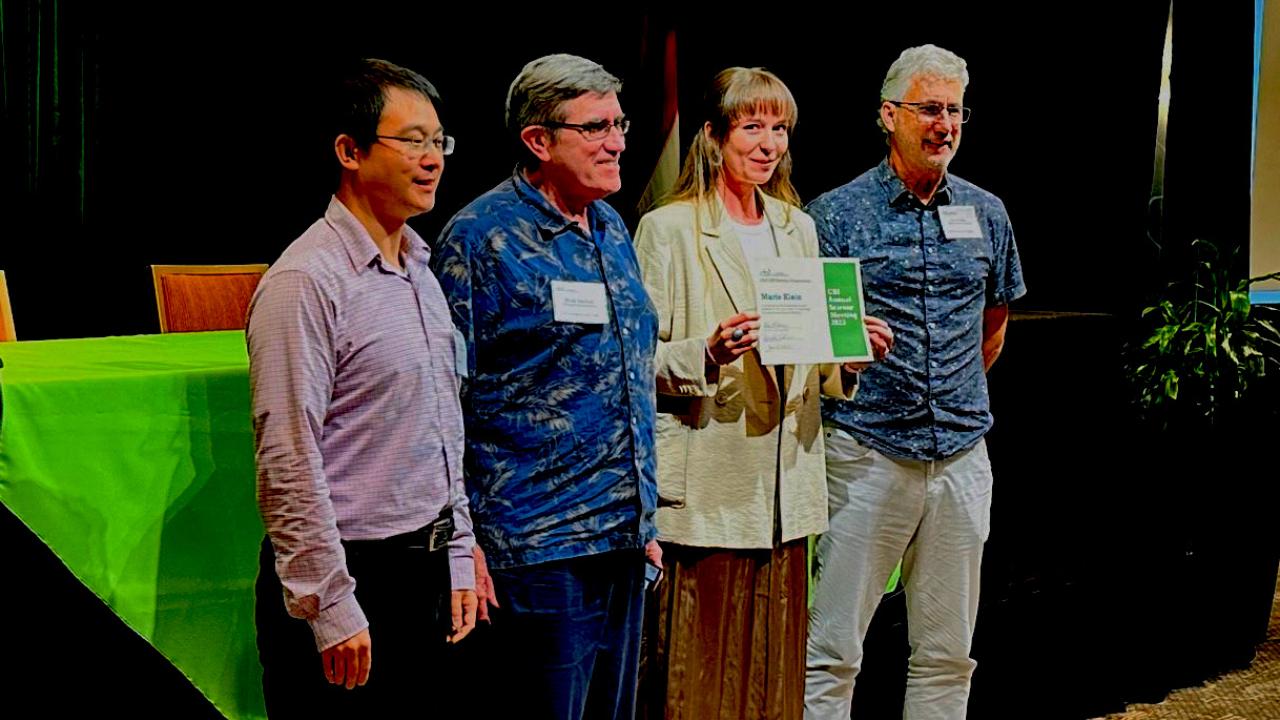
Klein wins best elevator pitch for poplar research
Doctoral student Marie Klein won the competition for best elevator talk describing her research at the recent annual meeting of the Center for Bioenergy Innovation, held in June in Asheville, N.C.
Klein is a third-year student in the lab of Gail Taylor, department chair, and focuses on how to grow poplar trees for use as jet fuel. The Taylor Lab is part of the center, a consortium of research institutions around the country, all working on different aspects of the same goal. The work is funded by the United States Department of Energy to reduce America’s reliance on fossil fuels and slash greenhouse gas emissions, which cause climate change, by 2050.
Poplars grow fast and already thrive in diverse regions ranging from wet to dry and cool to hot. The Taylor Lab has already planted around 8.000 trees from a variety of climes.
Researchers at the lab have developed a multi-faceted panel for testing how those trees fare when water is scarce, and they are seeking the genetic source of drought tolerance, Klein explained in her just-under-3-minute talk.
“Our research aims to advance the development of bioenergy crops suitable for growth on lands previously considered unsuitable (for agriculture), thus promoting sustainable energy production,” Klein said. By breeding such poplars, a plant-based energy program won’t compete for land that could grow food.
In the future, she’ll look for genes controlling how big the trees grow under drought conditions. She aims to gather information for a breeding program.
“As a scientist, my long-term goal is to continue contributing to sustainable agriculture through plant genetics, breeding and biotechnology,” Klein said.
The Center for Bioenergy Innovation hosts the competition at its annual meeting to encourage students and early-career researchers in the field to develop science communication skills. The center is supported through the DOE’s Department of Science.
Related links
Watch Klein’s elevator pitch here.
More about the Center for Bioenergy Innovation.
Related stories:
Media Resources
- Trina Kleist, UC Davis Department of Plant Sciences, tkleist@ucdavis.edu, (530) 601-6846
